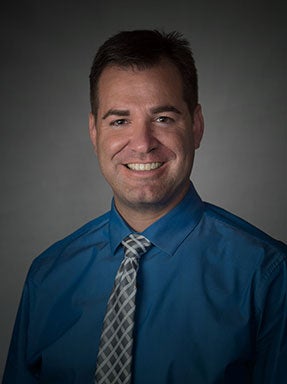Drug Development for Chronic Kidney Disease
Collaborative research at DU hopes to uncover an improved treatment for kidney disease
More than 25 million Americans live with chronic kidney disease (CKD), a potentially fatal condition characterized by gradual loss of kidney function over time.
Thanks to a pilot grant from DU's Knoebel Institute for Healthy Aging, a collaborative team of researchers is working to improve current pharmaceutical treatments for CKD by focusing on the synthesis of drug molecules.

“We are trying to improve methods for synthesizing compounds,” says Brian Michel, assistant professor in DU's Department of Chemistry and Biochemistry. "It could be possible that down the line a pharmaceutical company may use our new method in the synthesis of its drugs.”
The Knoebel Institute, which opened this fall, focuses on finding ways to increase the healthy years of life through interdisciplinary coursework and research at DU, and by collaborating with community partners.
This collaboration allows us to take the compounds we've made and utilize them in actual biological studies, which is incredibly important for driving innovation and rapidly advancing the science.
--Prof. Brian Michel, Department of Chemistry & Biochemistry
Chronic kidney disease is very prevalent among the aging population. Current methods of treatment are expensive and can ultimately require dialysis and kidney transplant. "If patients could ingest a small molecule drug, similar to how you might take aspirin, it would really improve in their daily regimens,” Michel says.
The project has offered both undergraduate and graduate chemistry students at DU the opportunity to participate in original research. It's also given them a glimpse into the collaborative nature of scientific research, as Michel is partnering with researchers at the University of Colorado Anschutz Medical Campus.
“This collaboration allows us to take the compounds we've made and utilize them in actual biological studies, which is incredibly important for driving innovation and rapidly advancing the science," Michel says.








